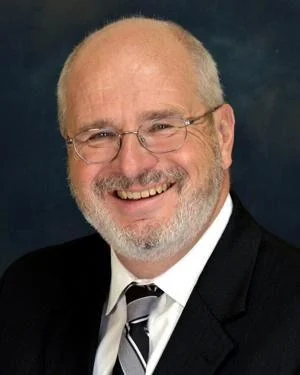Barbara Walters Made The Difficult Look Easy

John Krull, publisher, TheStatehouseFile.com
This was in the mid-1970s.
Impressionists had a field day with Walters’ habit of mushing “l†and “r†when she spoke. The late Gilda Radner had a lot of fun at Walters’ expense on “Saturday Night Live†as “Baba Wawa,†sending the newswoman up by speaking her lines as if she were trying to eat mashed potatoes and speak at the same time.
People also made sport of at least one of her questions—the time when she asked legendary actress Katharine Hepburn what sort of tree she would be.
Much of this jesting was a product of Walters’ stunning success. She had to fight her way onto television and to be taken seriously, but once she made her way in front of a camera, barrier after barrier fell before her. She achieved a celebrity as great as that of the people she interviewed.
When she died just before the start of this new year at age 93, much of the attention focused on her status as a pioneer, the woman who crashed the all-male party that had been broadcast journalism. Katie Couric penned a piece in The New York Times saying her own career and that of many other female journalists would not have been possible if Walters had not kicked open doors closed to women.
All that is true.
One problem with being a pioneer is that the fact that being first often obscures the qualities that made one emerge so powerfully.
The reason Barbara Walters achieved pioneer status was that she was really, really, really good at her job.
She was the best broadcast interviewer of her generation.
Maybe ever.
Interviewing isn’t easy.
Part of it is a science. That’s the portion anyone can learn and do. It involves preparation, doing one’s homework and studying the subject to think through a line of questioning that will elicit useful information or revelations that add to understanding.
Getting good at that part just requires hard work and discipline.
Some of it, though, is an art. The tricky piece of doing more than superficial interviewing involves knowing when and how to ask the follow-up question.
That demands intense focus, being so locked on the person with whom you are talking that you notice and read each twitch of body language, hear every hitch or nuance in what is being said.
Walters was a master of both halves of this equation.
When I was starting in this business, I watched how she conducted interviews, even when I wasn’t much interested in the person she interviewed. I took note of how she conducted herself—always seeming to lean forward, her eyes locked on the person she interviewed, which had the effect of encouraging the person both to keep talking and to forget about all the cameras and microphones surrounding the two of them.
If you think that’s easy, try it sometime.
I particularly focused on the way Walters’ asked for follow-ups. Such queries always came when she was searching for another window into the subject, a glimpse that would reveal something meaningful.
The three question she asked Katharine Hepburn that launched thousands of jokes and jibes was just such an example.
It was a follow-up.
In a 1981 interview, Hepburn—then in her middle 70s—said in her senior years she saw herself as a sturdy old tree. Walters asked the actress what sort of tree.
Hepburn answered that she would prefer to be an oak rather than an elm so she wouldn’t have to fear Dutch elm disease or some other withering scourge.
It was an illuminating answer from an aging woman who had fought for and fiercely guarded her independence and her sense of self-reliance all her life. It told Walters—and us—something about what Katharine Hepburn feared as the sunset approached.
There’s an old joke that goes like this: “Sure, Fred Astaire was great, but don’t forget that Ginger Rogers did everything he did … backward and in high heels.â€
It would be interesting to explore whether the barriers Barbara Walters had to shatter toughened her and made her better.
Or whether they held her back and she would have been even better if they hadn’t existed.
That would have been a great interview for someone.
A master interviewer.
Someone like Barbara Walters.
FOOTNOTE: John Krull is director of Franklin College’s Pulliam School of Journalism and publisher of TheStatehouseFile.com, a news website powered by Franklin College journalism students. The views expressed are those of the author only and should not be attributed to Franklin College.





